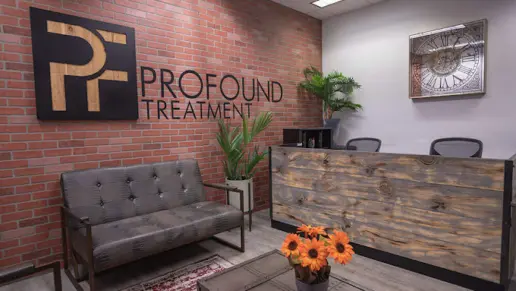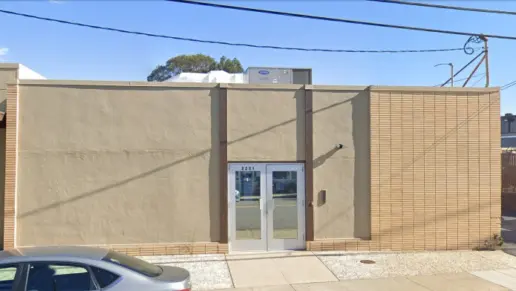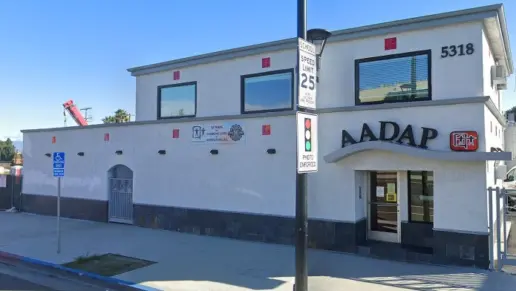About Progress Foundation – Crisis Program
Progress Foundation – Crisis Program is a dual diagnosis treatment center for adults in crisis in San Francisco, California. They offer alcohol and drug rehab services, as well as psychiatric treatment for co-occurring mental health conditions. Their services include inpatient treatment, transitional and emergency housing and aftercare programs for clients seeking diversion from hospitalization or incarceration. The program is limited to San Francisco residents. Self-referrals are not permitted.
Their inpatient program provides immediate clinical intervention for clients experiencing a psychiatric crisis or severe addiction. Following the social rehabilitation model, this program provides up to two weeks of care and may include individual and group therapy, recovery education and medical and psychiatric services as needed. The program is designed as an alternative to hospitalization and features an inviting, home-like setting and round-the-clock supervision and support.
Their transitional housing program offers a drug-free environment for clients to develop healthy relationships, reduce isolation, cultivate recovery-focused life skills and encourage long-term sobriety. Residents in the transitional housing program may participate in job training, attend school, or visit day treatment centers for continued care.
Their aftercare program connects former clients with cooperative living and independent living communities to continue their progress. These independent and semi-independent living facilities include special features for designated populations, including seniors, mothers and clients exiting long-term institutionalization.
Progress Foundation – Crisis Program accepts clients currently receiving or in the process of applying for San Francisco Medi-Cal benefits. The costs of other medical, mental health and addiction recovery services may be covered by most major insurance providers, such as United Healthcare, Ambetter, BlueCross BlueShield, Cigna, Humana, Anthem and Bright Health. Out of network benefits can vary, so contact your insurance provider to verify coverage.
Facility Overview
Latest Reviews
Rehab Score
Gallery

Location
Accepted Insurance
Other Forms of Payment
Medicaid is a state based program that helps lower-income individuals and families pay for healthcare. Medicaid covers addiction treatment so those enrolled can use their coverage to pay for rehab. When a program accepts Medicaid the client often pays very little or nothing out of their own pocket.
Private insurance refers to any kind of healthcare coverage that isn't from the state or federal government. This includes individual and family plans offered by an employer or purchased from the Insurance Marketplace. Every plan will have different requirements and out of pocket costs so be sure to get the full details before you start treatment.
Self-pay involves paying for treatment out of your own pocket. You can use savings or credit, get a personal loan, or receive help from family and friends to fund your treatment. If you don't have insurance or your insurance plan doesn't cover a specific program, self-pay can help ensure you still get the care you need.
Financial aid can take many forms. Centers may have grants or scholarships available to clients who meet eligibility requirements. Programs that receive SAMHSA grants may have financial aid available for those who need treatment as well. Grants and scholarships can help you pai for treatment without having to repay.
Medicare is a federal program that provides health insurance for those 65 and older. It also serves people under 65 with chronic and disabling health challenges. To use Medicare for addiction treatment you need to find a program that accepts Medicare and is in network with your plan. Out of pocket costs and preauthorization requirements vary, so always check with your provider.
Addiction Treatments
Levels of Care
Treatments
Many of those suffering from addiction also suffer from mental or emotional illnesses like schizophrenia, bipolar disorder, depression, or anxiety disorders. Rehab and other substance abuse facilities treating those with a dual diagnosis or co-occurring disorder administer psychiatric treatment to address the person's mental health issue in addition to drug and alcohol rehabilitation.
Mental health rehabs focus on helping individuals recover from mental illnesses like bipolar disorder, clinical depression, anxiety disorders, schizophrenia, and more. Mental health professionals at these facilities are trained to understand and treat mental health issues, both in individual and group settings.
Programs



Clinical Services
Cognitive Behavioral Therapy (CBT) is a therapy modality that focuses on the relationship between one's thoughts, feelings, and behaviors. It is used to establish and allow for healthy responses to thoughts and feelings (instead of unhealthy responses, like using drugs or alcohol). CBT has been proven effective for recovering addicts of all kinds, and is used to strengthen a patient's own self-awareness and ability to self-regulate. CBT allows individuals to monitor their own emotional state, become more adept at communicating with others, and manage stress without needing to engage in substance abuse.
Experiential therapy is a form of therapy in which clients are encouraged to surface and work through subconscious issues by engaging in real-time experiences. Experiential therapy departs from traditional talk therapy by involving the body, and having clients engage in activities, movements, and physical and emotional expression. This can involve role-play or using props (which can include other people). Experiential therapy can help people process trauma, memories, and emotion quickly, deeply, and in a lasting fashion, leading to substantial and impactful healing.
Group therapy is any therapeutic work that happens in a group (not one-on-one). There are a number of different group therapy modalities, including support groups, experiential therapy, psycho-education, and more. Group therapy involves treatment as well as processing interaction between group members.
Trauma therapy addresses traumatic incidents from a client's past that are likely affecting their present-day experience. Trauma is often one of the primary triggers and potential causes of addiction, and can stem from child sexual abuse, domestic violence, having a parent with a mental illness, losing one or both parents at a young age, teenage or adult sexual assault, or any number of other factors. The purpose of trauma therapy is to allow a patient to process trauma and move through and past it, with the help of trained and compassionate mental health professionals.
Staff

Executive Director

Director of Clinical Administration

Clinical Director to Napa and Sonoma Programs

Director of Transitional Services & Supported Living

Director of Crisis Services

Director of Operations & Clinical Services
Contact Information
1443 7th Avenue
San Francisco, CA 94122







